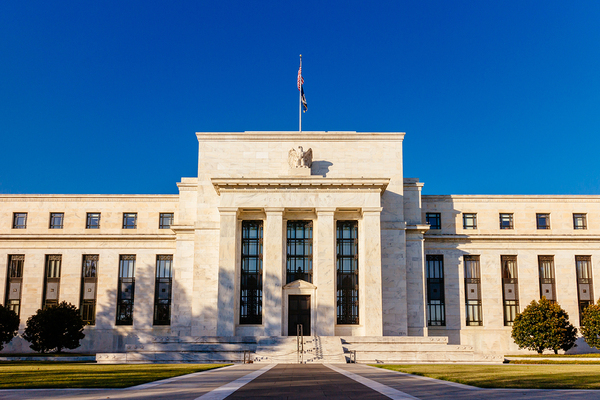 The Federal Reserve decided to keep interest rates as they are, for the time being.
The Federal Reserve decided to keep interest rates as they are, for the time being.
Economists have been on the edges of their seats waiting for another interest rate hike from the Federal Reserve. Many speculated that a potential decision to increase interest rates would be made during the agency's September meeting; however, it looks like we'll be waiting a bit longer.
While the central bank expressed some level of confidence in economic growth, it wasn't quite enough to increase rates this month. Instead, the committee decided to wait for more evidence of progress towards a stronger overall economy.
Despite the fact that the Fed believes the labor market has continued to show signs of strengthening and economic activity has boosted its pace, the agency somewhat lowered its expectations for inflation this year. Inflation still hasn't increased to the Fed's 2 percent target, though it believes this target will be reached as the labor market continues to strengthen.
The slow pace of economic growth over recent quarters undercuts the need to increase rates over the short term in an effort to bridge the gap between actual interest rates and
"neutral" levels, which is the level of the actual Fed funds rate that neither slows down nor speeds up the economy, and inflation is stable.
The central bank also continues to be
troubled by global events such as Brexit and the economic stagnation in China.
Fed Chair Janet Yellen has previously stated that the risks of increasing interest rates too quickly are greater compared to keeping things as is for the time being. The Fed does not have much wiggle room when it comes to slashing rates even lower should a downturn in the economy creep up.
The agency downgraded its prediction for economic growth for 2016 again, marking the third time this year this has occurred. Today, the Fed anticipates growth for 2016 to be
1.8 percent, down from 2 percent in June.
Most economists expected this news, considering the presidential election is right around the corner. The Fed likely did not want to be perceived to be playing any part in affecting the economy to influence the outcome of the election, and probably chose to hold off on increasing rates until after the election passed. As such, an increase is more likely to come at the December meeting.
 Banks need to continue adding "good" loans to the books despite more lending leaving this arena and heading to non-bank lenders.
Lending Shifts From Banks to Non-Banks Amidst Sluggish Economic Growth
Banks need to continue adding "good" loans to the books despite more lending leaving this arena and heading to non-bank lenders.
Lending Shifts From Banks to Non-Banks Amidst Sluggish Economic Growth
While the Federal Reserve continues to wait for the right moment to increase rates, a lot of lending is leaving the banking sector and heading to non-bank platforms. While the loan origination market has made a significant rebound since the economic crisis of 2008, traditional banks are being increasingly faced with stringent regulations that are eating into their profit margins.
The
Dodd-Frank Wall Street Reform and Consumer Protection Act have been requiring banks to retain more capital on the books in order to hedge against risk. Greater capital requirements for banks are putting a squeeze on their ability to lend as much.
In the meantime, alternative lenders have been stepping in to snag a good portion of the lending realm. These non-banks are not subject to the same type of constraints as banks are, and don't have the same stringent regulations to comply with. Since 2008, non-banks have been strengthening their position in the lending realm. In 2015, alternative lenders originated 68 percent more loans more than the year before.
With an increase in constraints in how banks are able to structure loans, borrowers are turning to alternative lenders to get what they need.
Banks and Non-Bank Lenders Need Solid Loans, and a Loan Sale Advisor Can Help
Regardless of what's happening in the current economy, good loans are still needed. There is still a strong requirement for credit in the economy, and banks must take measures to add "good" loans to their balance sheets. Having a larger proportion of these types of loans on their loan portfolios will help ensure a more profitable business.
In addition, even though non-bank lenders are increasing their piece of the loan pie, they still need appropriate funding sources in order to continue to grow and flourish.
In either situation, an experienced loan sale advisory team is necessary. Garnet Capital can help banks arrange appropriate loan purchases while still remaining in compliance with regulations. In addition, Garnet can help non-bank lenders tap into the necessary funding and sell loans in an efficient and compliant process.
Browse our white papers today to discover more about how Garnet Capital can help.






